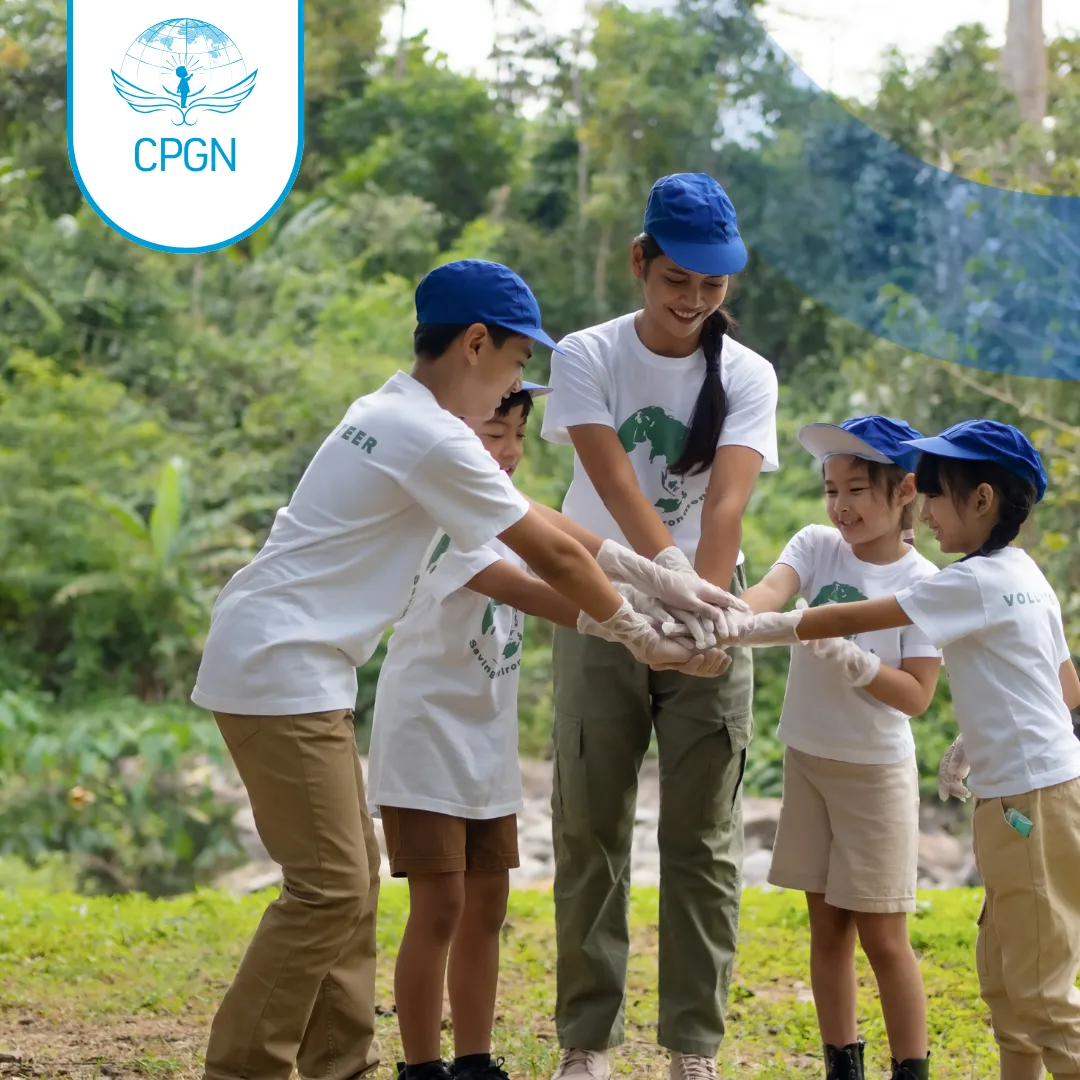Children thrive in communities that are safe, supportive, and rich in resources. Neighborhoods with parks, libraries, quality childcare centers, and engaged adults provide essential opportunities for social interaction, learning, and emotional growth. These environments help children develop important life skills like cooperation, empathy, and problem-solving. In contrast, children in under-resourced or unsafe communities often face developmental challenges due to limited access to quality education, healthcare, and positive role models. The presence or absence of these community assets can significantly influence a child’s overall well-being and future success.
The Role of Society in Child Development and Protection
In this blog, we’ll explore how different layers of society contribute to child development—and why it truly takes a village to raise a child.

Child development is a multifaceted process that involves the physical, emotional, cognitive, and social growth of a child from infancy through adolescence. While parents are the most direct influence on a child’s early development, society as a whole plays a crucial role in shaping a child’s future. From community support systems and cultural norms to schools and media, the environment around a child significantly affects their developmental trajectory.
In fact, a 2024 study published in ScienceDirect found that families play a moderate but vital role in instilling social values such as empathy and giving in children, with a weighted relative influence of 61.97% on children’s awareness of the culture of giving (Elsayed, 2024). The research emphasized that when families and educational institutions actively promote social engagement—such as through volunteering and field visits—children are more likely to develop a deep understanding of social responsibility and compassion.
The study of child development in a social context

What is child development?
Child development is related to the process by which children grow and acquire various skills, including cognitive thinking, emotional regulation, social communication, and motor abilities.
Why Society Matters in Shaping Child Growth?
Genetics sets the foundation, society builds the structure. A safe environment, access to education, exposure to positive role models, and community support all contribute to shaping strong individuals. A variety of societal variables influence outcomes, including parental involvement, cultural values, economic conditions, and parenting styles.
Parenting and Cultural Influences on Child Development
Cultural influences on parenting styles and child development are significant. In collectivist societies, children are often raised with an emphasis on obedience and respect for elders. In contrast, individualistic cultures might focus more on independence. These differing values affect how children perceive themselves and interact with the world.
Key Societal Influences on Child Development
A child’s development is shaped not only by their family but also by the broader environment around them. From parenting styles and parental involvement to the influence of neighborhoods, schools (including risks like child abuse in school), and media, many societal factors play a role in how children grow emotionally, socially, and academically. Understanding these influences helps us create healthier, more supportive environments where every child can thrive.

The Role of Parents and Parenting Styles
Parents are children’s first teachers. Parenting styles impact child development. Authoritative parenting, marked by warmth and structure, is linked with better academic and emotional outcomes. In contrast, permissive parenting may lead to behavioral issues and lower self-regulation.
Importance of parental involvement and presence
Parental involvement in child development cannot be underestimated. Children whose parents are engaged in their education and emotional well-being tend to perform better academically, have higher self-esteem, and build healthier relationships. Parental presence—not just physical, but emotional and psychological—creates a stable foundation for development, unlike disruptions such as parental alienation, which can erode trust and growth.
Role of community in child development
Impact of Schools and Daycare on Social and Emotional Growth
When comparing daycare vs stay-at-home child development, both settings offer unique benefits. Daycare supports early learning and social skills, while home care provides emotional security. A national study found that children in center-based care—alone or combined with home care—scored higher in reading and math, though emotional development was similar across all care types (Gordon et al., 2013).
What matters most is having consistent, caring adults and a stable routine.
Media, Technology, and Peer Influence
Media and technology influence child development is a growing concern. While educational media can be beneficial, excessive screen time is linked to attention problems, reduced physical activity, and delayed language development. Peer influence, especially during adolescence, further shapes identity and values.
The Family System as the Foundation of Society

Effects of Different Parenting Styles on Child Development
Each parenting style—authoritative, authoritarian, permissive, or uninvolved—has a different impact on child development. Research shows that authoritative parenting, which combines warmth with clear rules, leads to healthier outcomes, helping children build stronger self-esteem, emotional control, and academic success. According to Sanvictores and Mendez (2022), children raised by authoritative parents tend to manage negative emotions more effectively and perform better at school. This highlights the powerful influence parental style has on a child’s overall development.
(Source: National Library of Medicine).
Consequences of absent or abusive parents
Absent parents can cause emotional insecurity, trust issues, and academic struggles. Similarly, abusive parents and child development are closely linked, with long-term impacts on mental health, including anxiety and depression.
Influence of parental education on addiction
Parental education is associated with better child outcomes. How does parents’ education affect child development? Educated parents often provide a more stimulating home environment and are better equipped to support academic success. On the other hand, parental substance abuse impacts child development and includes disrupted attachment, developmental delays, and behavioral problems.
How Parental Involvement Affects Child Development Outcomes
Multiple studies confirm that parental involvement in child development efforts—such as reading together, attending school meetings, and creating daily routines—leads to higher achievement, better emotional regulation, and fewer behavioral issues.
Cultural and Societal Norms That Affect Child Development

Cultural Beliefs Around parenting and discipline
Different cultures view parenting through different lenses. Gentle parenting, often seen in Western countries, prioritizes empathy and emotional intelligence. How does gentle parenting affect a child’s development? It fosters secure attachment and strong emotional regulation skills.
The Impact of Economic Inequality on Child Development
Economic inequality creates major disparities in child development. Children from wealthier families typically have better access to healthcare, nutrition, and education. In contrast, children from low-income families are at a significant disadvantage from the start. According to the American Psychological Association, low-income students drop out of high school at five times the rate of middle-income peers and six times that of higher-income youth. Additionally, children from low-SES households score at least 10% lower than the national average in reading and math, and enter high school five years behind in literacy compared to high-income students.
Source: APA – Children, Youth, Families, and Socioeconomic Status
Immigrant Families and Child Development Challenges
How does having immigrant parents affect a child’s development? Children may face cultural dissonance, language barriers, or economic hardship, but they also benefit from strong familial bonds and a bicultural identity. Supporting systems play a key role in helping them navigate these challenges.
Collective Responsibility: Society's Role in Nurturing Children
The Role of Schools, NGOs, and Faith Communities

Organizations and institutions must work together. Schools are not just academic centers—they provide emotional support and social learning. Child development NGOs, like those focused on child development and resources for parents, help bridge educational and healthcare gaps, especially in marginalized communities.
Building Child-Friendly Communities
Local governments and community leaders must ensure environments that are physically safe, emotionally nurturing, and socially inclusive. Safety hazards are related to child development—from unsafe housing to a lack of recreational space—and should be actively addressed.
How Governments and Policies Can Support Development
Public policy plays a major role. Child protection policy, universal preschool programs, parental leave, and access to healthcare can dramatically enhance child development outcomes. This is why a collective effort is necessary for development.
Tips for Parents and Caregivers to Foster Healthy Child Development
Positive Parenting Tips for Healthy Child Growth
- Providing structure and routine
- Encourage open communication
- Practice empathy and emotional validation
- Set realistic expectations and praise.
Encouraging Emotional and Social Skills at Home
Simple practices like storytelling, role-playing, or family dinners help build emotional literacy and social competence. Remember, children learn best through observation.
Resources and Websites for Parents on Child Development
- Child development websites for parents
- Parent resources for children’s development
- Child development books for parents
- Parenting articles on child development
Trusted sources such as the Society for Research in Child Development, the CDC, and UNICEF offer reliable information and support for caregivers.
Taking a Village to Raise a Child
Child development is not solely the parents’ responsibility. Families, schools, communities, cultures, and national policies shape it. By recognizing the importance of parental involvement, the impact of parenting styles, and the collective responsibility of society, we can create a world where every child has the opportunity to thrive.
Let us work together to ensure that no child is left behind—because a child’s growth is the growth of our future. JOIN CPGN.
FAQS
Society influences childhood by shaping the environment in which children grow. Cultural values, parenting practices, schools, media, and public policies all impact physical, emotional, and cognitive growth. A supportive society provides education, healthcare, and safe communities, while an unequal or unsafe society creates barriers to healthy development.
Social factors, such as parenting styles, economic status, cultural beliefs, and peer groups, strongly influence behavior and growth. For example, authoritative parenting fosters self-esteem and resilience, while poverty can limit access to education and nutrition, leading to developmental delays.
Children thrive in communities that are safe and resource-rich, with parks, schools, and supportive adults. Communities provide opportunities for social interaction, learning, and problem-solving. On the other hand, unsafe or under-resourced communities can hinder development due to a lack of role models, healthcare, and educational opportunities.
Childhood is not only a biological stage but also a social construct. Different societies define what it means to be a child based on cultural values. For instance, collectivist societies often emphasize obedience and family duty, while individualistic cultures tend to stress independence and self-expression.
The primary influences are parents, caregivers, teachers, peers, and media. Parents provide the foundation through attachment and values, while schools and peers shape social skills. Media and cultural norms also affect attitudes, language, and identity formation.
Society influences human development through education, healthcare, cultural traditions, and public policy. Access to resources, safe environments, and positive role models enables growth, while inequality, neglect, or harmful cultural norms can limit development.
Key factors include parental involvement, cultural norms, socioeconomic conditions, education, healthcare access, and peer relationships. Together, these shape emotional regulation, social competence, and cognitive abilities throughout life.
Society provides the cultural context in which children form identity. Through family values, peer acceptance, and social norms, children learn who they are and how they relate to others. Social feedback plays a crucial role in shaping self-esteem, confidence, and a sense of belonging.
Children are seen as learners, future leaders, contributors, and carriers of cultural values. Their roles include participating in education, helping families, engaging in community activities, and preparing for responsible adulthood.
Children contribute by learning, practicing empathy, volunteering, and supporting peers. Even small actions, such as showing kindness or helping at home, lay the foundation for social responsibility and future civic engagement.
The leading roles in society include caregivers (parents, teachers), providers (workers, leaders), protectors (governments, communities), and learners (children and youth). Each role ensures the cycle of growth, protection, and progress continues.
Human development is vital because a society's future depends on the well-being of its people. Healthy, educated, and emotionally stable individuals make significant contributions to their communities, economies, and cultural progress. Neglecting development harms both individuals and the collective future.
While many factors are essential, parental involvement and family support play the most significant role. Research indicates that caring and engaged parents lay the foundation for resilience, emotional security, and academic success. However, communities, schools, and policies also remain essential.
Mark Schwartz
Mark Schwartz is a dedicated child protection advocate and co-founder of Child Protection Global Network (CPGN). With a strong background in community development and public education, he focuses on raising awareness about the realities of child abuse and neglect. Mark leads outreach efforts to inform families, educators, and communities about the importance of recognizing warning signs and reporting abuse. His work is driven by a deep belief that informed communities are the first line of defense in protecting children.
All Posts
See a child in danger? If you are in immediate danger, call local emergency services. For guidance from CPGN, Get Help.
CPGN is a 501(c)(3) — donations are tax-deductible where applicable. Our goal is to ensure the safety and protection of every child until it is achieved.
Quick Links
See a child in danger? If you are in immediate danger, call local emergency services. For guidance from CPGN, Get Help.
CPGN is a 501(c)(3) — donations are tax-deductible where applicable. Our goal is to ensure the safety and protection of every child until it is achieved.
Copyright © 2026 CPGN. All rights reserved by Majnate LLP | Privacy Policy | Terms and Conditions

